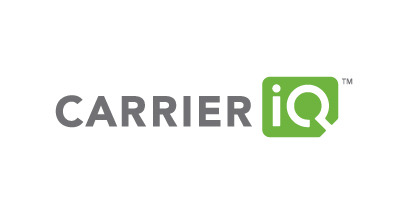
A few days ago, the tech blogosphere more or less blew up after learning that software company Carrier IQ sent a rather nasty cease-and-desist letter to an XDA developers member. The grounds ? The XDA member in question, Trevor Eckhart, had discovered and exposed Carrier IQ’s tracking software residing in Android handsets. If you have never heard of Carrier IQ, it’s quite all right, few have. The pre-loaded code is ostensibly able to track everything that happens on your device, without the user being able to opt in or out, remove or disable. If you were curious of what it can track, here’s a quick list: keyboard keystrokes, receiving / sending a text message, button presses, whether your screen is on or off, and calls. Scary, isn’t it?
Carrier IQ later retracted their cease and desist letter and put out the following statement:
“Our action was misguided and we are deeply sorry for any concern or trouble that our letter may have caused Mr. Eckhart.”
Now, I made that distinction above that it “can” do all those things for an important reason: the software has the capability to indiscriminately track and log what one does, but it doesn’t, according to the company. They stressed that their software “does not record keystrokes” and “does not provide tracking tools.” Fair enough. Even more interesting is the wording in this line:
“[Our software] does not inspect or report on the content of your communications, such as the content of emails and SMSs”
Notice that Carrier IQ doesn’t refute the fact that their software handles a user’s text message; only that it “doesn’t report on the content.” That could very well be the case, but we now know that the Carrier IQ software does, in fact, know what the contents of the text messages are. (Jump to 12:27 http://youtu.be/T17XQI_AYNo)
Since the whole kerfuffle, carriers have come out left and right, revealing their association with Carrier IQ. Nokia, Verizon, RIM, Microsoft, and HP have all denied any affiliation with Carrier IQ. Meanwhile, Sprint, T-Mobile, AT&T, HTC, Samsung, and Apple all admit to have it installed touting maintaining good network performance as their basis. Apple, however, stated that they stopped supporting Carrier IQ pre-iOS 5 and “will remove it completely in a future software update.”
As far as Android goes, the tracking software is found on many of the handsets, but Google has put out an official statement and said that they have “no affiliation with the company” — none of the “pure Google devices like the Motorola Xoom and Nexus devices ship with the software pre-loaded.
According to HTC:
“Carrier IQ is required on devices by a number of U.S carriers.”
So at least one among Sprint, T-Mobile and AT&T require their devices to ship with Carrier IQ.
And if things couldn’t get any more gripping, a class-action lawsuit was filed on Friday against the likes of Apple, HTC, Samsung, Motorola, AT&T, Sprint, T-Mobile and Carrier IQ in the Delaware Federal Court. Of course, it’s way too early to tell which way this case will swing — or even if it’ll advance past this preliminary stage — but I’ll certainly keep an eye on it.
The bigger question her is how much does it track? At first blush, it seems like a lot, but the carriers are standing their ground and saying it’s only tracking data for “network performance.” Grab your popcorn, folks, because this will only get more interesting. Just ask Sony.

Follow Me!